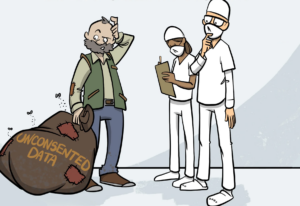“Data-Driven Thinking” is written by members of the media community and contains fresh ideas on the digital revolution in media.
Today’s column is written by Nitin Rabadia, commercial director, Kepler Group.
As an industry, we’re guilty of procrastination. With just months until third-party cookies are deprecated, so many advertisers are still twiddling their thumbs. Some marketers are deliberately doing nothing to prepare. They’re betting on more delays, similar to Google’s Chrome cookie removal hesitation.
But procrastinating is a curious and dangerous approach.
The idea that advertisers don’t need to do much because Big Tech will fix this problem for them is a fallacy. So, too, is the idea that there will be a universally adopted solution that will work across all markets.
For any advertiser that has not yet dedicated the necessary time and resources to prepare for the death of the cookie, there is still a window of opportunity. But it’s closing fast. Here are the key actions advertisers should take while there’s still time.
Conduct a risk and opportunity assessment
First, audit. Advertisers – particularly those hesitant to commit to change – should start with a survey or SWOT analysis before they consider alternatives.
By mapping its dependency on third-party cookies, a brand will quickly identify its level of exposure. Areas to assess include: advertiser-managed ad servers, DMPs and buying platforms; tracking, targeting and measurement capabilities; and what percentage of sales are linked to the use of third-party cookies.
Advertisers should also assess how much Facebook and Google marketing they rely on, what individual channel investment looks like and how much second- and third-party data drives their efforts.
After an internal audit, it’s also essential to audit the market – platforms, ad tech, measurement agencies, publishers – to evaluate available solutions. Because many cookieless solutions are open source, there’s also opportunity to test them and collaborate on improvements.
Invest in a customer data platform
Almost universally, audits will reveal that first-party data underpins the entire advertising ecosystem.
No matter what alternative to third-party tracking the industry adopts – be it contextual advertising and “clean rooms,” Google’s “Topics” or Unified ID 2.0 – it is the shift to first-party data that advertisers should prioritize. Enter customer data platforms.
Well-prepared advertisers have already either invested in an enterprise customer data platform (CDP) or have built their own. These platforms unify records of all customers, their data and their consented attributes. Third-party tools and platforms then plug into this software to execute advertising and analyze performance.
A good CDP should be able to navigate platforms of all scopes, not just media buying. It’s also wise to map and understand CDPs’ current limitations in areas such as creative formats and targeting.
Build publisher relationships
Brands must focus on building relationships with individual publishers to understand how their first-party data can be used without tracking cookies via a third party. Delaying this is risky. Publishers have much to offer, but partnering with them requires a degree of experimentation for brands.
Speak with publishers and explore the shift toward segment-based or group-based data sharing, predictive modeling AI and contextual advertising, which may offer proxies for audiences as a safe replacement to cookies.
Watch the macro trends
For any procrastinators that still need convincing, just look at what the world’s most successful advertisers have already done. Acknowledge that digital advertising is in the foothills of a new revolution, powered by a different sort of data and a new philosophical approach.
The halcyon days of low Facebook CPMs and high performance have come to an end. The online ad market is much more complicated now. New channels, opportunities and technologies are making the status quo obsolete.
Advertisers must adapt to this reality. The future will require brands to adopt a single data strategy for the entire business, and that requires a holistic approach from the marketing function.
The most ambitious businesses have this sorted already. They will hit the ground running, while the digital procrastinators will be left in the dust.
Follow Kepler Group (@KeplerGrp) and AdExchanger (@adexchanger) on Twitter.














